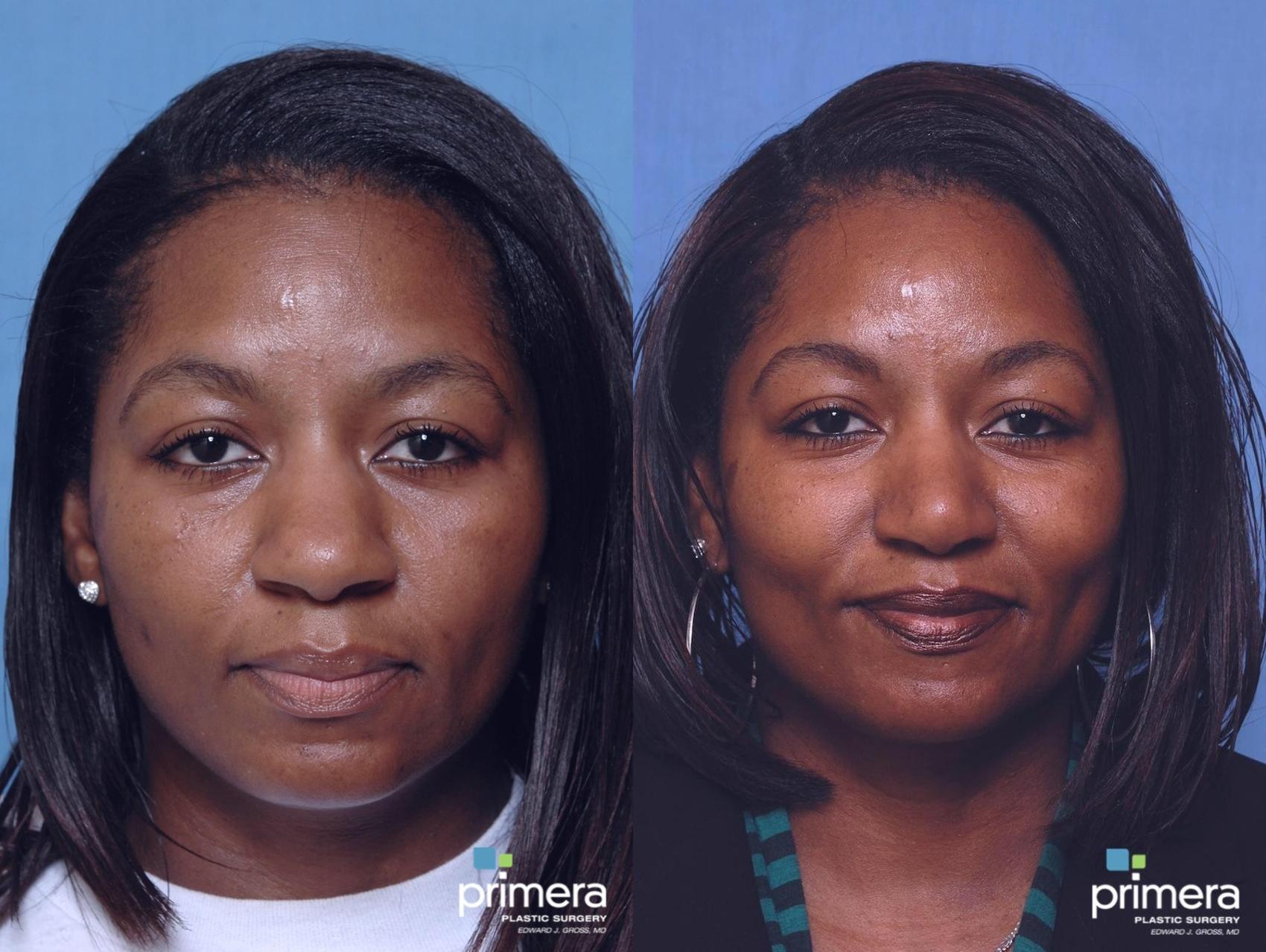After getting rhinoplasty, most patients can’t wait to see the results of their surgery. However, the final results may take weeks to months to appear as swelling subsides and the tissues settle into place. To help you prepare for swelling after rhinoplasty, we answer some of your top questions below, from how long swelling will last to how to decrease swelling.
How Long Does Swelling Last After Rhinoplasty?
Swelling typically peaks within the first 48 to 72 hours after surgery. While its duration and severity vary from person to person, most swelling dissipates over several weeks. Mild residual swelling may take several more months to a year to fully dissipate. As a result, your results will continue to improve over time. Trust in the process and give your body the time it needs to heal.
Learn more about recovery after rhinoplasty in our related blog post.
Keep in mind that swelling may be more severe and persistent after a revision rhinoplasty procedure.
Can Swelling Make the Nose Look Crooked After Rhinoplasty?
Swelling can temporarily distort how your nose looks after rhinoplasty, making it appear crooked or asymmetrical. This is especially common during the early stages of recovery when swelling is at its peak. As the swelling subsides and the tissues heal, your nose will gradually assume its final shape and contour.
How Long Does Bridge Swelling Last After Rhinoplasty?
One recent study suggests that the bridge of the nose swells more than the nasal tip after rhinoplasty, but bridge edema resolves more quickly. In general, you can expect swelling in the bridge area of your nose to resolve within the first few weeks of your surgery. However, residual swelling may persist for several months, especially in cases where extensive changes were made to the nasal structure.
Do the Nostrils Swell After Rhinoplasty?
Yes, your nostrils can swell after rhinoplasty, especially if the surgery modifies the nasal tip or nostril size. This is a normal part of the healing process and is not indicative of your final results. You will see the full benefits of your procedure as the swelling clears.
How Do I Decrease Swelling After Rhinoplasty?
While some swelling is inevitable after any surgery, you can take several steps to minimize its impact and promote faster healing:
- Follow postoperative instructions: Your facial plastic surgeon will provide specific guidelines for postoperative care, including how to manage swelling. It’s crucial to follow these instructions carefully to optimize your recovery.
- Keep your head elevated: Elevating your head while resting or sleeping reduces swelling by increasing drainage and decreasing pressure in the nose’s blood vessels. Use extra pillows to keep your head elevated at a 30- to 45-degree angle.
- Apply cold compresses: Applying cold compresses to your eyes and cheeks can improve comfort by constricting blood vessels and reducing swelling. Be sure to use a clean cloth or lightweight ice pack wrapped in a towel to avoid direct contact with the skin.
- Stay hydrated: Drinking plenty of water helps flush out excess fluids from your body, decreasing swelling and promoting faster healing.
- Avoid strenuous activities: Engaging in strenuous activities increases swelling and impedes healing. Follow your plastic surgeon’s recommendations regarding physical activity and avoid activities that could damage your healing nose (such as contact sports).
- Limit salt intake: Consuming excessive salt can lead to fluid retention and exacerbate swelling. Try to limit your salt intake during recovery to minimize swelling.
- Take prescribed medications: Your plastic surgeon may prescribe medications to manage pain and inflammation after rhinoplasty. Take these medications as directed to help control swelling and discomfort.
Get Started With Rhinoplasty
If you are ready to start your aesthetic journey and discover what rhinoplasty can do for you, please request a consultation online or call Primera Plastic Surgery at (407) 333-3040.





Leave a Reply